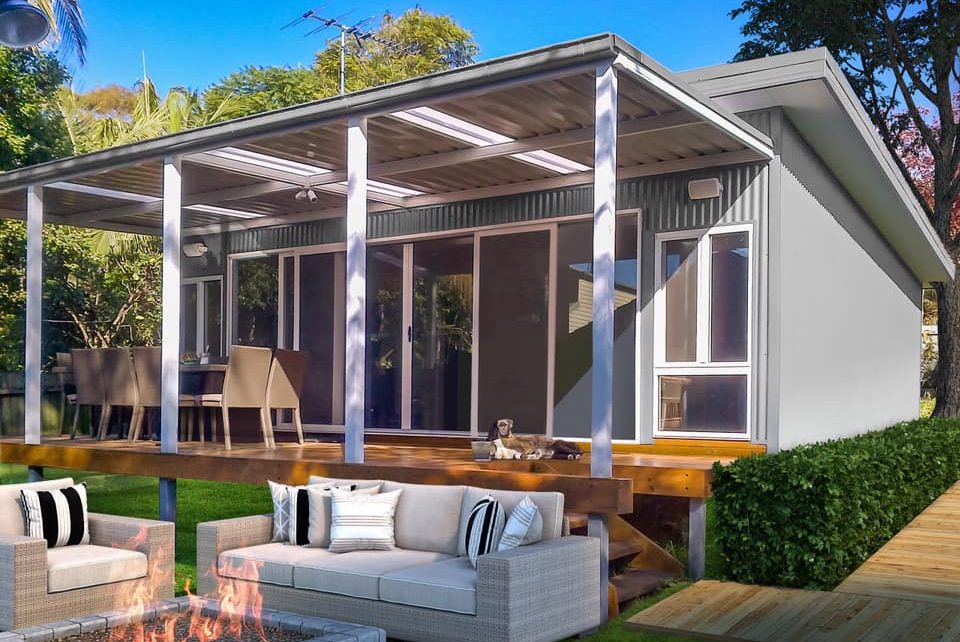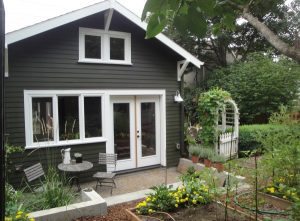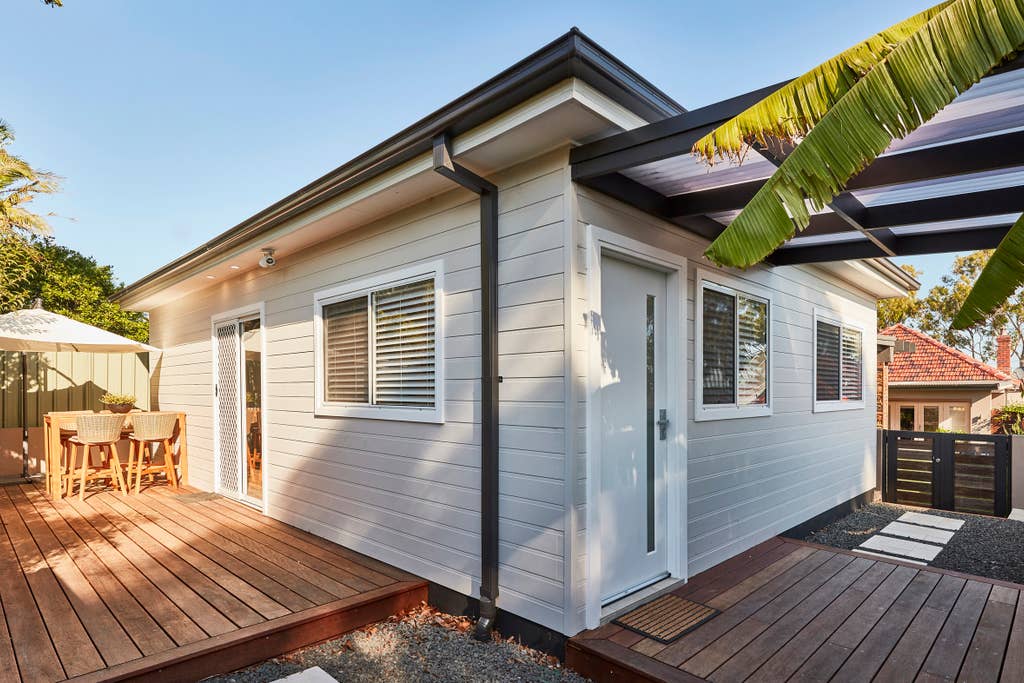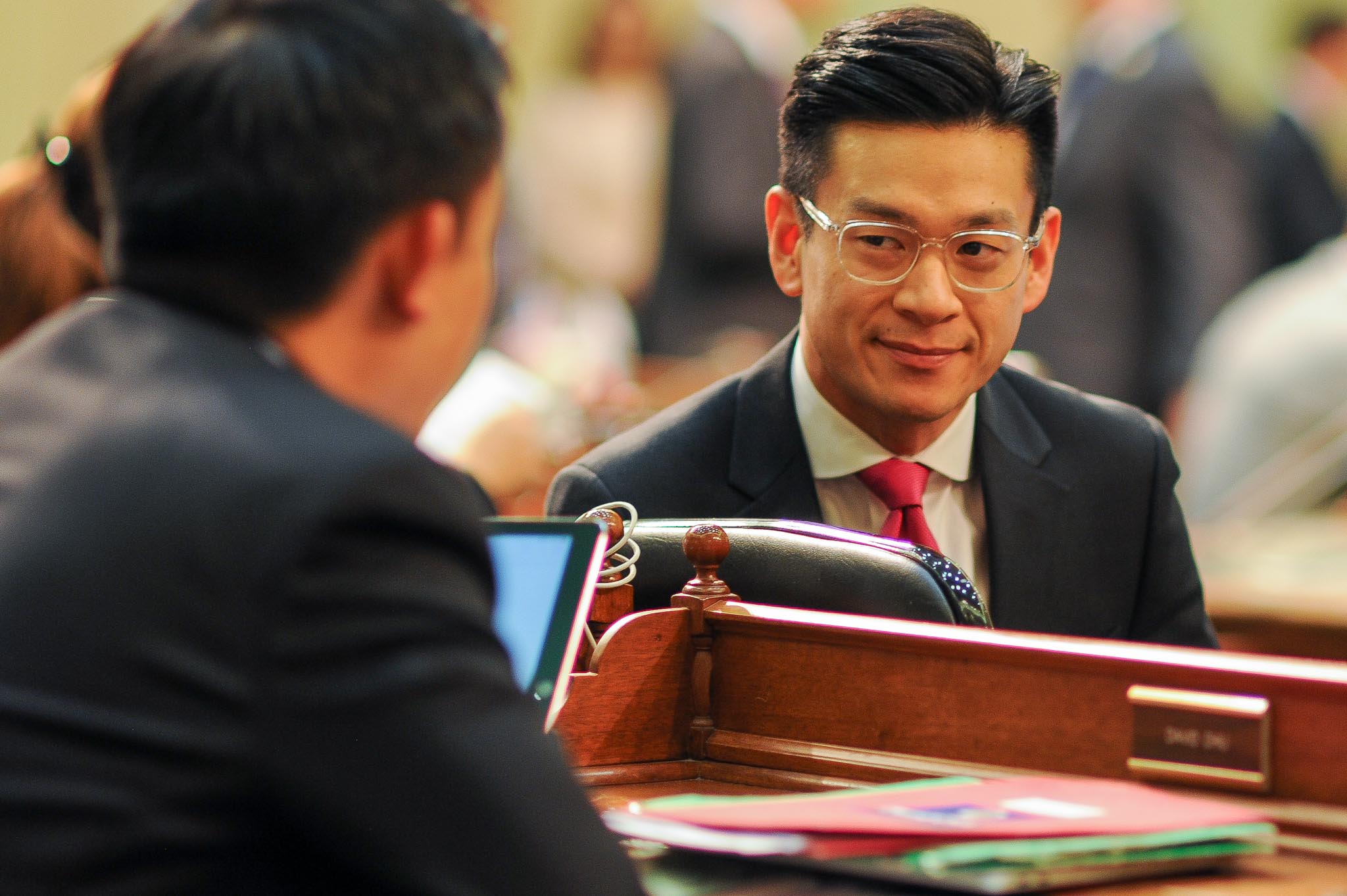
Granny Flat. (Photo: Facebook)
State Creating Financing Program for ‘Granny Flats’
State loans will act more as an interim financier and bridge loan for borrower
By Katy Grimes, August 6, 2020 2:08 pm
The California Legislature has focused for several years on the significant need to create additional housing across the state. As such, they passed the Accessory Dwelling Unit law, also known as accessory apartments, accessory dwellings, mother-in-law units, or granny flats, which are additional living spaces on single-family lots that have a separate kitchen, bathroom, and exterior access independent of the primary residence.
AB 69 by Assemblyman Phil Ting (D-San Francisco), was heard in the Senate Housing Committee Thursday. The bill was written to create a state financing program so homeowners can add additional housing units, including an accessory dwelling unit to their property.
Why do homeowners in California need a state-financing program?
The first reason is that AB 69 is largely a work-around to the barriers the state has created to building affordable housing of all kinds. Rather than amending or abolishing the California Environmental Quality Act (CEQA), other environmental mandates, and the multitude of state regulations and local county rules, this is what legislators chose to do.

The other reason is that the Legislature is trying to accommodate those with little-to-no equity in their property and/or have poor credit, by creating a state financing program to get them started.
Currently under the state’s Accessory Dwelling Unit law:
a) Provides that if a locality adopts a local ADU ordinance, it must meet certain requirements and cannot impose certain requirements, as specified. AB 69 (Ting) Page 2 of 8
b) Requires a local agency to ministerially approve, within 60 days, an application for a building permit to create an ADU and a JADU, as specified.
c) Prohibits a local ordinance from requiring an applicant for an ADU to be an owner occupant.
d) Imposes certain minimum and maximum square footage, height, and setback limits for ADUs.
e) Provides for a tiered schedule of impact fees based on the size of the ADU, as specified.
The other obvious “barrier” to homeowners wishing to add an accessory dwelling unit to their property is poor credit and/or a lack of equity in the property.
Sen. Nancy Skinner (D-Berkeley), the co-author of AB 69, explained that the bill is a “financing tool,” available to any homeowner, but in particular those who have a difficult time obtaining traditional financing.
Sen. John Moorlack (R-Costa Mesa) expressed his concern that California is getting involved in things that are not necessarily the business of the state. He also asked if the borrowers who use the program are those who have no equity in the home and/or a poor credit rating, what is the anticipated default rate?
Deputy Treasurer Tim Schaefer explained that the issue lies with anticipated future rents from the accessory dwelling unit, and anticipated increase in value of the home because of the added accessory dwelling unit. Schaefer said traditional mortgage financing and the underwriters cannot use anticipated rents and increased values, so the state financing will act more as an interim financier and bridge loan for the borrower.
The Senate Housing Committee voted — some from the Senate Chambers, some from their Senate offices, and some remotely – and passed AB 69 with 6 Aye votes, 2 Not-Voting, and 1 No vote.
- Sacramento Taxpayers Pay for Mobile Veterinary Clinic for Homeless Drug Addicts’ Pets - July 26, 2025
- Ninth Circuit Kills California’s Ammo Background Check Law: Here is the Decision – and the Dissent - July 25, 2025
- What it Costs to Buy a House in America: California’s Median Price is $790,000! - July 24, 2025








California state Sen. Nancy Skinner? The homely woman is a typical worthless Democrat communist from Berkeley who has sponged off taxpayers her entire life. She doesn’t care about the anticipated default rate of borrowers that might use the program who have no equity in the home and/or a poor credit rating. It’s not her money?
Comrades
Do you believe these small units will be affordable after local fees as high as $75,000.00 for schools and infrastructure are included?
Post Covid who will want to live in congested enviros teaming with crime, poverty, sketchy health care and nonexistent police protection.
Queeg
If the ADU is less than 750sf most impact fees except for school fees are waived. Depending upon the jurisdiction the total building permit and impact fees would probably be in the $5-10,000 range. There are bank programs available to finance ADU’s. This government intrusion once again is not needed but the legislators have to find something to do and get people obligated to vote for them as a quid pro quo.
Granny flats ignore housing density laws, ignore lack of parking and public safety, and encourage regional overpopuation in lower income areas, which ultimately overburdens social services. Ultimately, overpopulation lowers the quality of life for all in these areas.
How does Prop 15, if passed affect the homeowner with an ADU? just curious, because I’m sure they never thought about that, wink wink.
Newsom chose not to sign this Bill into law. I’d love to know how that decision was made.! ????
Newsom chose not to sign this Bill into law. I’d love to know how that decision was made. ????